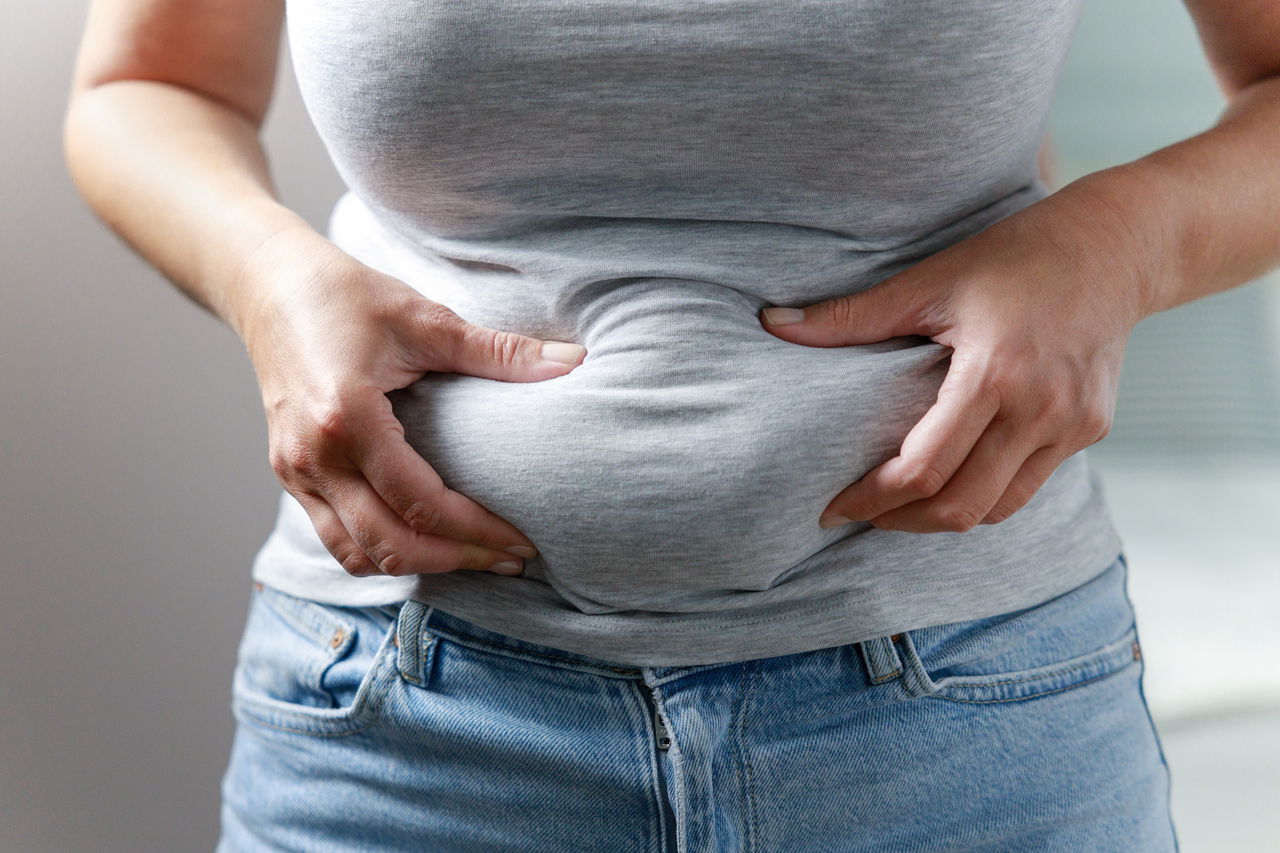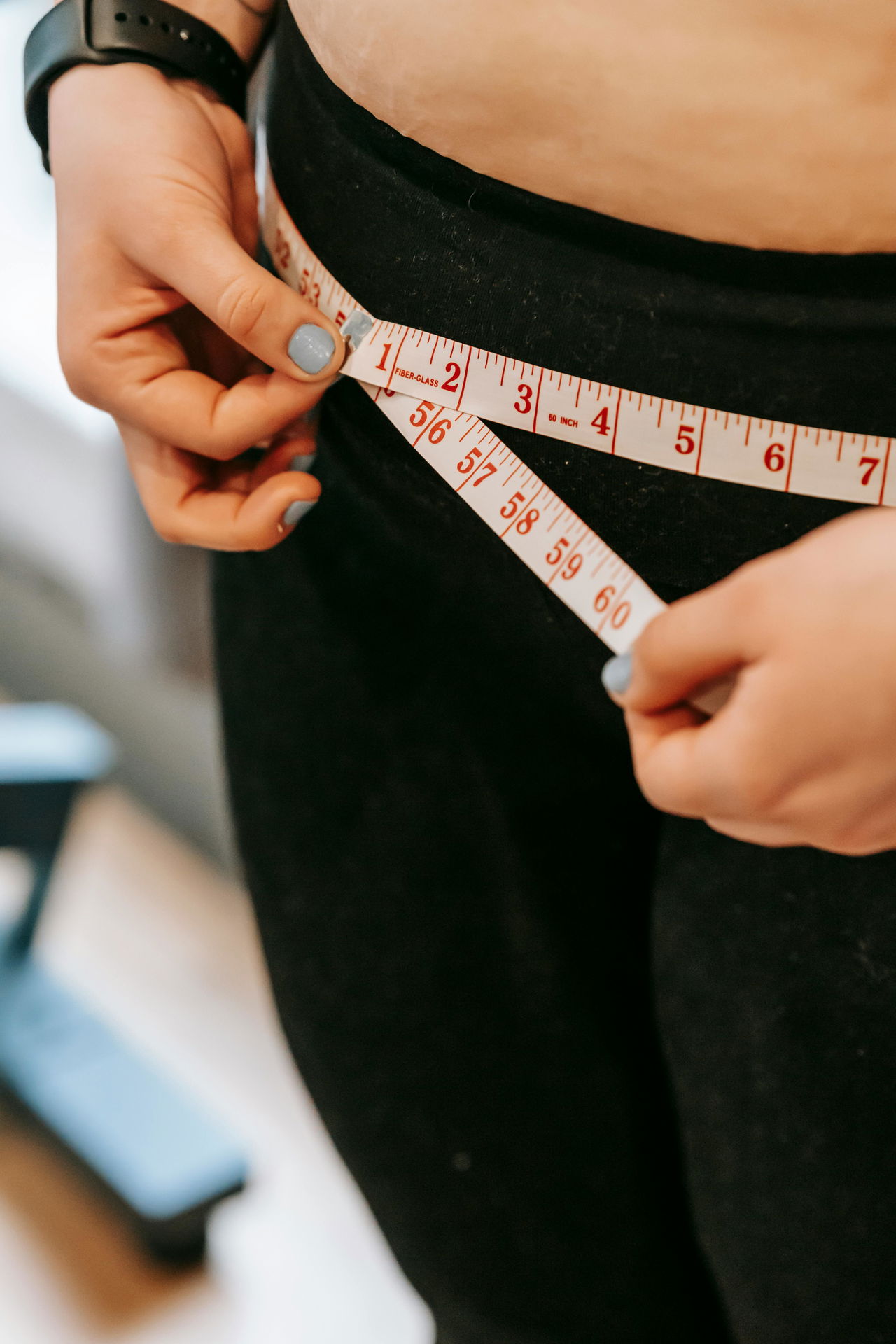
What Supplement Gets Rid of the Menopause Belly Fat?
5 min. read
If you’ve noticed more fat accumulating around your midsection since entering perimenopause or menopause, you’re not alone. Changes in hormones, metabolism, sleep, and body composition all contribute to what’s often called the “menopause belly.” You may be wondering: Is there a supplement that can target that belly fat specifically?
The short answer is: there’s no one supplement that will simply melt it away, but some can help support your body’s systems so that your lifestyle efforts have greater impact.
Why Does Menopause Tend to Lead to More Belly Fat?
Understanding the underlying biology helps you appreciate why supplements alone won’t do the job, they’re one piece of the puzzle.
Estrogen Decline & Fat Storage Shift: As estrogen levels drop in menopause, fat distribution often shifts from hips and thighs to the abdomen (visceral fat), which is more metabolically active and linked to cardiovascular and metabolic risks.
Slowed Metabolism and Muscle Loss: With age and hormonal changes, lean muscle mass tends to decline unless countered. Less muscle means fewer calories burned at rest.
Insulin Resistance & Inflammation: Midlife hormonal shifts can increase insulin resistance and promote chronic low-grade inflammation, both of which favor belly fat accumulation.
Sleep Disruption and Stress: Night sweats, hot flashes, poor sleep, and elevated cortisol (stress hormone) may impair metabolic regulation and fat management.
Given these interlocking factors, the strategy to reduce the “menopause belly” needs to be multifactorial: diet, exercise, sleep/stress management, and potentially some smart supplementation.

What Role Can Supplements Play?
Supplements can help support specific underlying issues (e.g., inflammation, insulin resistance, muscle loss), but they cannot replace lifestyle changes. Many reputable sources emphasize that supplements are adjuncts, not magic bullets. Think of supplements as amplifiers: when your diet is solid, you are moving regularly, sleeping well, and managing stress, then certain supplements may help you get a little extra edge. But if the basics aren’t in place, the supplement alone will offer little.
"I've been taking fish oil supplements for about 15 yrs. and this is one of the best ones I've taken...no fishy taste or smell."
- R. Valdez
Evidence-Backed Supplements to Consider for Menopause-Related Belly Fat
Here are some of the best-supported supplements for the menopause belly context, why they might help, and realistic caveats.
1. Omega-3 Fatty Acids (EPA & DHA)
What They Do: Lower inflammation, improve blood lipids, and may support fat metabolism and insulin sensitivity.
Why They May Help Belly Fat: Because abdominal/visceral fat is strongly linked to inflammation, supporting anti-inflammatory pathways may reduce the tendency to store fat around the middle.
Practical Dose & Notes: Look for approximately 1,000 mg combined EPA & DHA (check label). Choose fish oil or algae-derived if vegetarian. Ensure product quality (third-party testing).
Caveats: Effects are modest; they support the effort, not replace it.
Product Highlight: Pure Micronutrients Pure Fish Oil
Pure Micronutrients' Pure Fish Oil is a high-potency omega-3 supplement providing 3,000 mg of combined EPA and DHA per serving. This formulation is enteric-coated and lemon-infused, ensuring no fishy aftertaste or burps. It's derived from sustainably sourced Peruvian anchovies, known for producing some of the purest fish oil due to their short lifespan and position low on the food chain.
2. Protein Supplement / Ensuring Adequate Protein Intake
What It Does: Helps preserve lean muscle mass, supports metabolism, aids satiety (so you eat less overall).
Menopause Belly Relevance: Losing muscle means fewer calories burned at rest, preserving/increasing muscle can help prevent fat storage, including around the midsection.
Practical Dose & Notes: Aim for 25–30 g of quality protein per meal; consider a whey or plant-based protein powder if you struggle to reach that naturally.
Caveats: It’s food first; supplement only if needed. If you already eat sufficient protein, adding more won’t dramatically change fat loss unless overall balance is good.
3. Soluble Fibre (Psyllium, Inulin, Glucomannan) & Gut Health Support
What It Does: Slows digestion, increases satiety, improves gut microbiome health, which is increasingly linked to metabolic regulation and fat distribution.
Relevance to Belly Fat: A healthier gut plus stable blood sugar plus less hunger/snacking equals better fat loss conditions.
Practical Dose & Notes: 5–10 g of a soluble fibre supplement before meals can help. Choose gentle forms to avoid digestive upset. Pair with plenty of water.
Caveats: Not a stand-alone fat burner; more about improving the environment for fat loss.
4. Adaptogen / Stress Reduction Supplements (e.g., Ashwagandha)
What It Does: Helps modulate stress response, potentially lower cortisol, and improve sleep, all of which influence body fat distribution.
Relevance to Belly Fat: High cortisol plus poor sleep equals increased belly fat. By improving stress/sleep, you reduce one driver of fat accumulation.
Practical Dose & Notes: Follow evidence-based dosing on the product you choose (some studies used approximately 300–600 mg/day for ashwagandha).
Caveats: Again, this supports the system, it doesn’t melt fat on its own.
5. Metabolic Support & Hormone Modulating Supplements (DIM, Berberine, etc.)
What They Do:
DIM (Diindolylmethane): Derived from cruciferous vegetables; supports estrogen metabolite balance, which may help in hormonal transitions.
Berberine: Plant alkaloid with strong effects on insulin sensitivity and metabolic pathways (AMPK activation), promising for fat loss applications.
Relevance to Belly Fat: Since menopause involves hormonal shifts and metabolic slowdown, these tools may help correct the terrain.
Practical Dose & Notes: These tend to be more advanced supplements, consult a healthcare provider before use.
Caveats: Evidence is emerging but not yet robust for menopause-specific belly fat; best used under professional supervision.
Setting Realistic Expectations
These supplements may support fat loss efforts, but they will not “get rid” of menopause belly fat magically.
The magnitude of benefit is generally modest compared to what diet, strength training, and sleep/stress management can accomplish.
No one supplement is sufficient on its own; it must be part of a broader plan.
How to integrate supplements into your plan: A sample protocol
Here’s a potential structure you might follow, always adapted and approved by your clinician or dietitian.
Baseline phase (Weeks 1–2):
Track your current mid‑section measurements (waist, waist‑to‑hip ratio) and symptoms (sleep quality, hunger, mood).
Ensure your diet is balanced (adequate protein, plenty of vegetables, moderate healthy fats) and you are doing regular movement (strength + aerobic).
Choose one or two supplements (e.g., omega‑3 and protein) to start.
Support phase (Weeks 3–12):
Introduce another supplement if appropriate (e.g., soluble fibre or ashwagandha).
Maintain consistency: strength training 2+ days/week, at least 150 minutes moderate activity/week.
Prioritise sleep (7‑8 hours), manage stress (daily mindfulness or breathing).
Re‑measure waist/hips at Week 8 and Week 12; note changes in mood, appetite, sleep, energy.
Review & adjust (after ~12 weeks):
If you see meaningful improvement (e.g. waist reduction, less bloating, better sleep) continue the approach.
If limited progress, revisit your plan: nutrition may need refinement, exercise intensity/focus may need adjustment, or you may need to consult a specialist for further options (e.g., hormone therapy evaluation).
Always review supplement use with your healthcare provider, check for interactions, safety, appropriateness.
Safety & quality considerations
Choose third-party tested supplements as unfortunately many are poorly regulated.
Discuss with your doctor especially if you have:
Hormone-sensitive cancers
Thyroid or adrenal disorders
Medications for diabetes, blood pressure, or hormones
Stop any supplement if you notice adverse effects (liver symptoms, digestive upset, mood shifts) and report them.
Keep expectations realistic: supplement = support, not a cure.
Final thoughts
The “menopause belly” is real and frustrating for many, but it’s not inevitable or untreatable. Through a combination of smart lifestyle habits: balanced nutrition, strength and aerobic exercise, good sleep and stress management, plus strategic supplementation, you can reclaim control of your body shape, health and confidence.
Supplements can help you optimize your system for fat‑loss, especially during the hormonal and metabolic transition of menopause. However, they won’t magically erase belly fat if the foundation (diet, movement, sleep) isn’t in place. Use them as part of a holistic plan, not as a shortcut.
If you’re ready to take action, pick 1‑2 well‑reviewed supplements, crawl into consistency with your lifestyle plan, give yourself at least 12 weeks, measure progress and adjust as needed, and partner with your healthcare provider every step of the way.

Browse other supplements
Shop now
Frequently asked questions
No. Supplements can’t directly burn belly fat, but they can support hormones, metabolism, inflammation, and sleep—making your lifestyle efforts more effective.
Top options include omega-3s (inflammation), protein (muscle + metabolism), soluble fiber (appetite + gut health), adaptogens like ashwagandha (stress/cortisol), and metabolic aids like berberine or DIM. They work by supporting the underlying cause, not by melting fat.
Most women see changes in 8–12 weeks when combining supplements with consistent diet, exercise, and sleep habits.
Generally yes, if you choose high-quality products. Check with your doctor if you have hormone-related conditions, thyroid issues, or take medications.